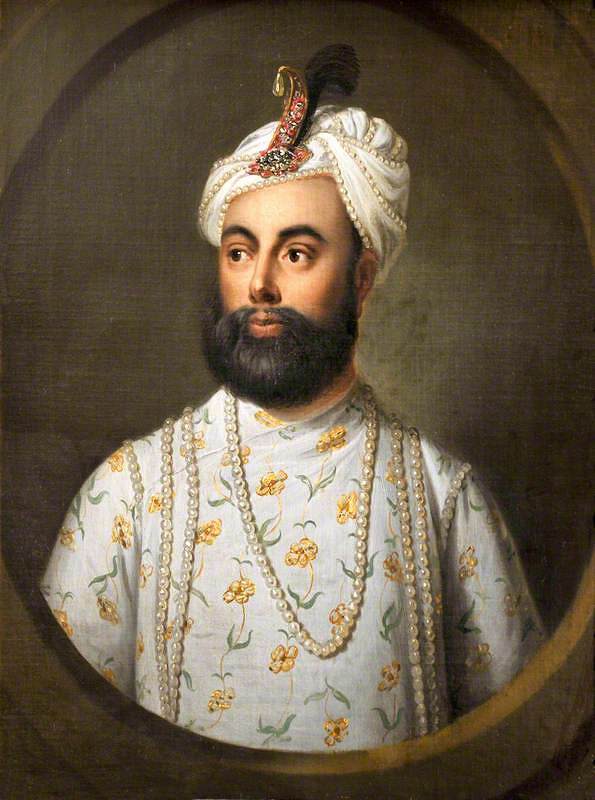Description
The painting of Prince Azim-ud-Daula is a masterpiece by the artist Thomas Hickey. This portrait of the Nawab of the Carnatic is a perfect example of the neoclassical artistic style, characterized by precision in the rendering of detail and symmetry in composition.
The figure of Prince Azim-ud-Daula is the focus of the painting, and his figure is noted for the elegance of his clothing and the majesty of his posture. The composition of the painting is very balanced, with the Nawab seated on a golden throne and surrounded by red and gold velvet drapes.
Color is another prominent aspect of this painting. Hickey used a rich and vibrant color palette, bringing out the beauty of the Nawab's clothing and the opulence of his surroundings. Gold and red tones predominate in the work, creating an atmosphere of luxury and sophistication.
The history of the painting is also interesting. It was made in 1798, during the time that Hickey was working in India for the British East India Company. Prince Azim-ud-Daula was an Indian nobleman of great importance, and his portrait was commissioned by the Company as a gesture of friendship and respect for him.
Furthermore, there are little-known aspects of this painting that make it even more fascinating. For example, Hickey is believed to have used another Indian nobleman as the model for the Nawab's face, as Prince Azim-ud-Daula was ill at the time and unable to pose for the painting.
In short, the painting of Prince Azim-ud-Daula is an impressive work that combines the precision of the neoclassical style with the opulence and exoticism of 18th century India. It is a jewel of colonial art and a testament to the rich history of India and its relationship with the British East India Company.

